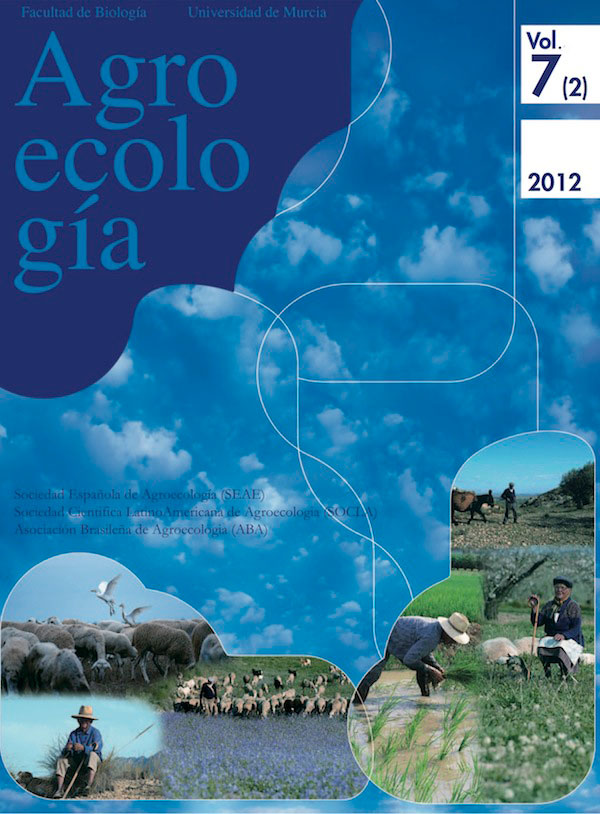An ethnoagronomic approach to agrodiversity and to the genetic erosion of traditional agrisystems
Abstract
Etnoagronomy is becoming a new discipline that studies the traditional agrosystems, serving the needs that agroecology has to interpret the keys of traditional agriculture to be applied to modern agriculture. The recent development of the discipline requires that as we try to retrieve all the possible information we will develop the tools for its implementation.
Likewise the attempts to measure the level of genetic erosion of the traditional agrosystems has exposed the difficulty of combining ecological parameters with socioeconomic parameters that are pertinent when dealing with agrodiversity. In this regard the development of certain indicators such as the Frequency of Appearance in a Plantation, the Importance for Species and the Use of Vernacular Names, contribute quantitative data that facilitates comparison and measurement of certain phenomena, such as the genetic erosion, when we carry out a diachronic analysis.
Downloads
Las obras que se publican en esta revista están sujetas a los siguientes términos:
1. El Servicio de Publicaciones de la Universidad de Murcia (la editorial) conserva los derechos patrimoniales (copyright) de las obras publicadas, y favorece y permite la reutilización de las mismas bajo la licencia de uso indicada en el punto 2.
2. Las obras se publican en la edición electrónica de la revista bajo una licencia Creative Commons Reconocimiento-NoComercial-SinObraDerivada 3.0 España (texto legal). Se pueden copiar, usar, difundir, transmitir y exponer públicamente, siempre que: i) se cite la autoría y la fuente original de su publicación (revista, editorial y URL de la obra); ii) no se usen para fines comerciales; iii) se mencione la existencia y especificaciones de esta licencia de uso.
3. Condiciones de auto-archivo. Se permite y se anima a los autores a difundir electrónicamente las versiones pre-print (versión antes de ser evaluada) y/o post-print (versión evaluada y aceptada para su publicación) de sus obras antes de su publicación, ya que favorece su circulación y difusión más temprana y con ello un posible aumento en su citación y alcance entre la comunidad académica. Color RoMEO: verde.





